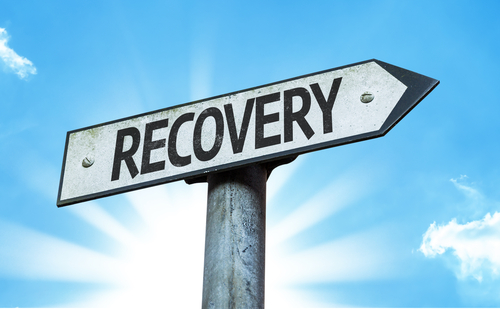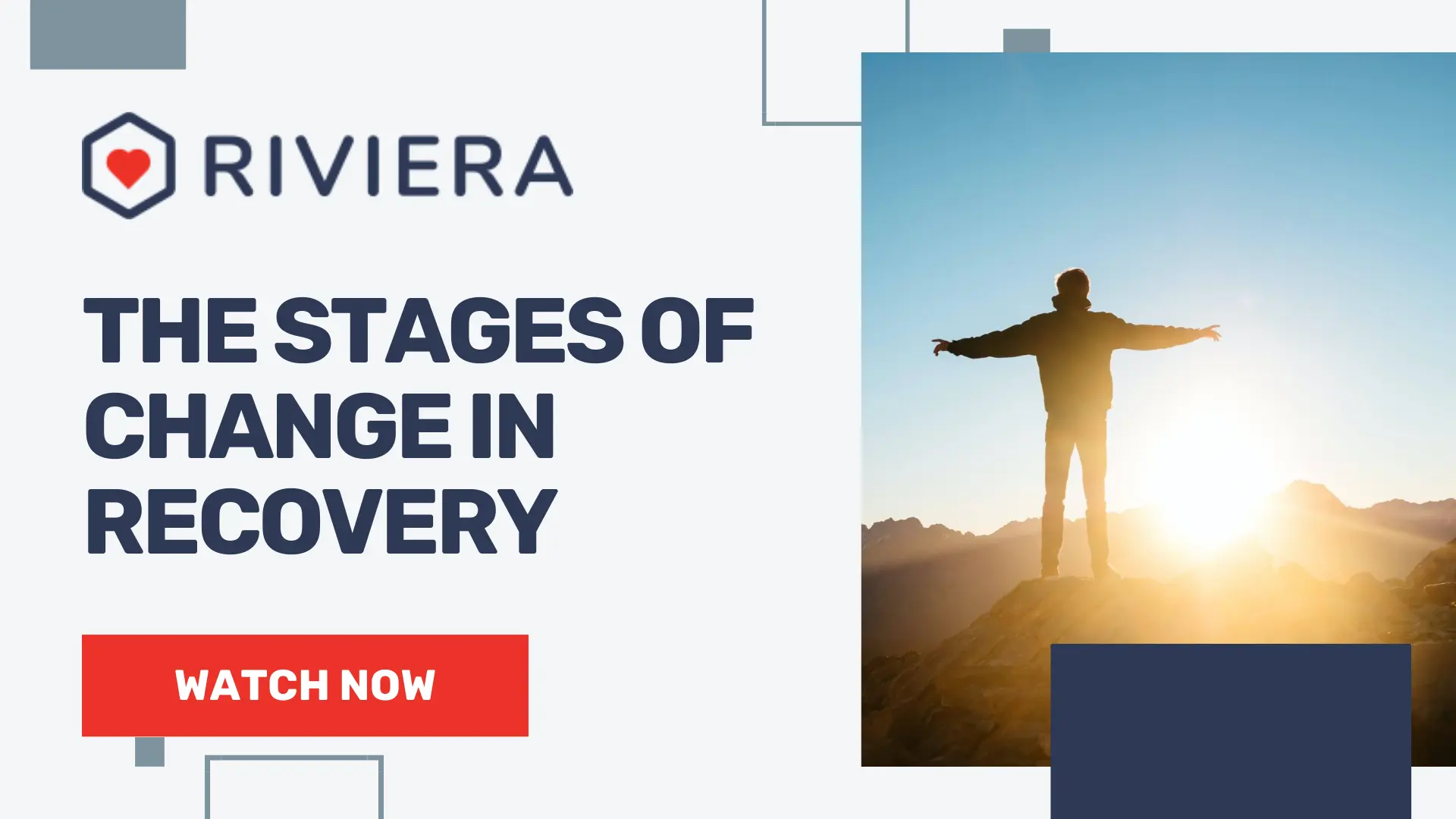Of the more than 21 million people who are struggling with a substance use disorder, almost all of them experience challenges when it comes to getting help and maintaining their recovery. For example, some individuals are deep in denial that they have a clinical problem with drug or alcohol abuse, prompting them to keep using rather than reach out for help. Others hooked on drugs or alcohol may be more apt to admit their issues. They are also more likely to seek professional help to address their disease. There is much more to addiction recovery than what meets the eye. Simply stopping use does not make the disease disappear. It takes effort, dedication, and perseverance to make it through the several stages of change in addiction recovery.
In this article, we will cover the 5 Stages of Change Model, explain exactly what each stage is, and how to utilize the model best to help you in your recovery journey.
What Exactly is the 5 Stages of Change Model?
The 5 Stages of Change Model is a theoretical model used in addiction recovery to understand how individuals move through behavior change. The model was developed by James Prochaska and Carlo DiClemente in the 1980s and is also known as the Transtheoretical Model of Behavior Change. The 5 Stages of Change Model can be a helpful tool for individuals in addiction recovery and for professionals working in the field to understand and support behavior change.

The 5 Stages of Change in Addiction Recovery
So, what are the stages of change in addiction recovery? There are five specific stages that define the process of going from actively addicted to recovered. The stages of change in addiction include precontemplation, contemplation, preparation, action, and maintenance. Relapse is the one additional stage of change that can occur in some individuals. Relapse can trigger the cycle of these 5 stages to begin once more.
Precontemplation
The first stage of change is the precontemplation stage which occurs in those who are entirely resistant or skeptical of being able to stop using. Individuals in this stage tend to feel hopeless about their abilities to overcome the challenges related to their addiction. They are also typically unwilling to get help. Others in this stage may not even think that their behaviors are problematic. This is because they either haven’t experienced any consequences of their use yet or are unwilling to accept their issues as problematic. Eventually, however, individuals can be moved out of this stage after experiencing one or more repercussions of their use. This can cause them to think more about the severity of their situation.
Contemplation
Contemplating something simply means to think about something closely and attentively. Those addicted to drugs and alcohol often reach the second stage of change in their addiction when they become accustomed to the idea that their substance abuse is uncontrollable and that professional help is likely needed. That realization does not always lead to a phone call to a rehab center. Many people can remain in the contemplation stage for years. Even though they recognize that they have a problem that they cannot fix on their own, addicted individuals often hesitate to ask for help. In both the precontemplation and contemplation stages of change in addiction recovery, individuals are not yet seeking treatment.
Preparation
Blossoming from the contemplation stage, the preparation stage occurs when the individual is ready to start putting together actionable items they can work off of when ready to get the help they need finally. They have spent much time thinking about their addiction. Typically they will go over the pros and cons of their use and look up helpful resources often. Individuals begin thinking about what their personal change is going to look like. This includes whether they want to reduce their substance abuse or stop use altogether. They also try to determine how they will go about taking those actions. Also specific to this stage is the individual’s efforts to begin putting in place support to help them accomplish their recovery goals. This includes friends, family, and addiction specialists.
Action
Reaching the action stage means that an individual is actively beginning to make the changes necessary to curb or end their substance abuse. For many people, the action stage begins in the company of healthcare professionals. This includes healthcare professionals from a detox center or a treatment program. Some people, however, begin to make changes at home independently. Frequently they will use the support of their loved ones and community resources. The amount of effort that was placed in the preparation stage can set the scene for how quickly the action stage is carried out. This is because the action stage is usually quicker and more effective when more effort and detail occur during preparation.
Maintenance
The maintenance stage is reached when the individual has effectively stopped abusing drugs and alcohol and is actively working to remain abstinent from use or better control their drug use. At this time, individuals are also working to maintain positive, healthy behaviors. This is opposed to ones that emerged most profoundly during the time they were actively abusing substances. Maintenance can range in difficulty for each person. Making an effort to maintain long-term recovery takes significant attention and focus.
Relapse
There is one stage of change in addiction recovery that does not always occur in all individuals — relapse. Relapse occurs when someone who has stopped using or curbed their use has returned to their substance abuse and addictive behaviors. Those who relapse use drugs and alcohol over and over, as opposed to just one time. Relapse is part of recovery for everyone, as it is something everyone is working to prevent or experiencing. It is common for those who relapse to begin the stages of change in addiction recovery from the top before finding their way back into their sobriety. It is also common for individuals to pick up the pieces of their relapse quickly if they have the right support to do so, keeping them from going through this entire cycle again.

How to Use the 5 Stages of Change in Your Recovery Process
If you are struggling with addiction and looking to change your behavior, the 5 Stages of Change Model can be a valuable tool to help you understand where you are in the recovery process and how to move forward. There are many different ways to utilize this model, so here are some helpful tips when learning about the stages of recovery.
Recognize Where You Are
The first step is to identify which stage of change you are in. Are you in precontemplation, contemplation, preparation, action, or maintenance? Be honest with yourself about your current situation and what you are willing to do to change.
Understand the Characteristics of Each Stage
Each stage has its own set of characteristics, challenges, and goals. Learn more about the stages of change and what to expect. This can help you prepare for what’s ahead and set realistic expectations for yourself.
Set Realistic Goals
Once you have identified where you are in the recovery process, setting realistic goals for yourself is essential. For example, if you are in the preparation stage, your goal might be to find a therapist or support group to help you with your addiction. If you are in the action stage, your goal might be to attend several meetings each week or abstain from using drugs or alcohol.
Seek Support
Addiction recovery can be a difficult and lonely process, but you don’t have to do it alone. Seek support from friends, family members, or professionals who can help you. Joining a support group, attending therapy, or seeking out a sponsor can be helpful ways to get the support you need.
Practice Self-Care
Recovery is a challenging process, and taking care of yourself along the way is important. This might mean eating well, getting enough sleep, and engaging in activities that bring you joy and fulfillment.

Begin Your Stages of Change in Addiction Recovery at Riviera Recovery
At Riviera Recovery, we understand how difficult it can be to have that daily battle in your mind about your substance abuse. We know it is easy to go back and forth between wanting to get help and feeling hopeless. We provide sober living and addiction treatment plans to those struggling with addiction.
If you or a loved one has been struggling with addiction, know you do not have to do it alone. Contact us today to learn more about our treatment programs and how they can help you begin the recovery process.



